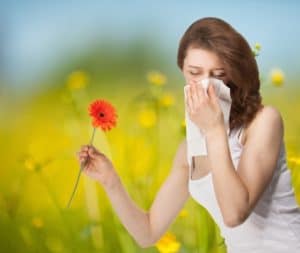
Why Are Your Allergies So Bad in the Spring?
Just when you think you have finally escaped the dangers of the flu during the winter, spring arrives with its onslaught of allergy triggers. As itchy eyes, sneezing, and congestion threaten to ruin the next few months of your life, it is important to understand why your allergies are so bad in the spring so that you can seek relief in the most effective way possible.
Why Do Seasonal Allergies Form?
There are certain times of the year, usually spring and fall, when outdoor molds release spores while plants like weeds, grasses, and trees release pollen particles into the air. This is a natural and important component of a healthy ecosystem, but it unfortunately causes the immune systems of people with allergies to treat the mold spores and pollen particles‒called allergens‒as foreign invaders in the body.
When the body believes it is being attacked by a foreign substance, it releases many different chemicals into the bloodstream, including histamines. Histamines are helpful in the right situation, but when it comes to fighting allergens, histamines only manage to cause seasonal allergy symptoms like runny nose, itchy eyes, sneezing, and coughing.
How Do Seasonal Allergies Change With the Calendar?
The seasonal allergies that impact children and adults alike change based on time of year, the geographic location, and the specific allergens that trigger somebody to experience symptoms. The cool weather of winter tends to prevent plants and molds from becoming active, but elm, hickory, walnut, sycamore, pecan, and olive trees can begin releasing allergens as early as February in Florida. Many allergens continue to become more prevalent through March, April, May, and June, especially as more flowers bloom and grass cutting begins once again.
How Should I Alleviate My Spring Allergy Symptoms?
Managing allergies involves a combination of preventative measures and medication. First and foremost, check your local weather report for the day’s pollen count. Specific weather conditions cause the pollen count in the air to rise or fall, so you should stay inside as much as possible during the times of day when pollen is most prevalent. Simple measures like staying hydrated, taking a warm bath or shower, placing a cold compress on irritated eyes, and using soft tissues can help bring comfort to bothersome allergy symptoms.
For more permanent relief, severe seasonal allergies require medication. At Kratz Allergy- Asthma in Port Richey and Odessa, Florida, Dr. Jaime Kratz, MD will use a comprehensive medical evaluation to determine which allergy treatment will help you feel the relief you need. Call (813) 670-7062 to make your appointment now.
